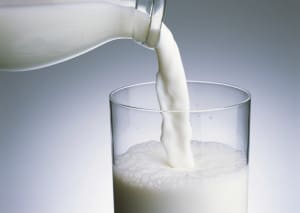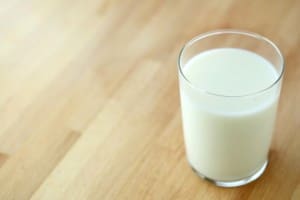Milk… It does a body good
The Health Nurse came for her monthly visit and discussed Milk. Here is information on Milk and Milk Substitutes…
The recommended milk for children ages 2 and over is low-fat (1%) or fat-free (skim) milk. Children under the age of 2 should drink whole milk or reduced fat (2%) milk. The milk can be traditional cow’s milk, lactose reduced milk, lactose free milk, buttermilk, or acidified milk. It should all be pasteurized.
For those children who cannot consume milk due to medical or other special dietary needs, other than disability, non-dairy beverages may be served in lieu of milk. These non-dairy beverages should be nutritionally equivalent to milk and meet the nutritional standards for fortification of calcium, protein, vitamin A, vitamin D, and other nutrients to levels found in cow’s milk.
Nutrient — Per Cup
Calcium — 276 mg
Protein — 8 g
Vitamin A — 500 IU
Vitamin D — 100 IU
Magnesium — 24 mg
Phosphorus — 222 mg
Potassium — 349 mg
Riboflavin — 0.44 mg
Vitamin B-12 — 1.1 mcg
Parents or guardians may request in writing non-dairy milk substitutions, as described above, without providing a medical statement. For example, if a parent has a child who follows a vegan diet, the parent can submit a written request to the child’s caretaker asking that soy milk be served in lieu of cow’s milk. The written request must identify the medical or other special dietary need that restricts the diet of the child.
Here is a list of non-dairy or cow’s milk substitutions that line up nutritionally:
– Low fat or fat free lactose-reduced, buttermilk and acidified milk
– Goat milk, sheep milk, buffalo milk (must pasteurized)
– Soy milk (calcium and vitamin D fortified)
Here are non-dairy substitutions that may be lower in some nutritional aspects:
– Almond milk (lower protein)
– Rice milk (lower protein)
– Almond milk “plus” (lower calcium and protein)
– Cashew milk (lower protein)
– Coconut milk (lower calcium and protein)
– Hemp milk (lower protein)
– Oat milk (lower protein)
– Whole grain drink (lower protein)
– Flax milk (lower protein)
A form will be provided for parents to sign to indicate consent for milk substitutions at Little Beginnings Learning Center.






